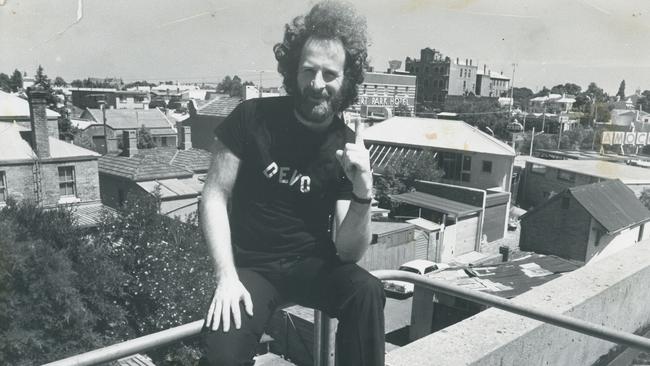Past Lives: the latest Korean film taking global cinema by storm
Past Lives, the latest Korean film taking global cinema by storm, explores old memories, old friendships and contemporary realities.

Past Lives (M)
In cinemas
★★★★½
Have you ever wondered what became of your childhood sweetheart, your first love? That’s essentially the theme of Past Lives, the exquisite first feature film from playwright Celine Song. Remarkably accomplished for a debut film, Past Lives skirts sentimentality as it follows the fortunes of its two protagonists over a period of 24 years.
The opening scene is set in the present. In a New York bar, three people are sipping drinks. There is an Asian man, an Asian woman – who are deep in conversation – and a Caucasian man who seems a bit out of it, a little detached. We don’t hear what they’re saying – instead we hear the comments of an unseen couple who are observing them and speculating about their relationship to one another. We’ll come back to this scene much later in the film.
A title announcing “24 Years Earlier” leads us to Seoul where 12-year-olds Na Young (Seung Ah Moon) and Hae Sung (Seung Min Yim) are friends and rivals – she bursts into tears when he edges her out to second place in a school assignment, but despite that they seem to be inseparable. A lovely scene in which, sitting next to one another in a car driven by Na Young’s mother (Ji Hye Yoon) as they return from a visit to a park, she falls asleep on his shoulder; there’s no doubt about the closeness of the relationship.
But this is about to end – Na Young’s parents are emigrating to Canada and when the time comes for parting the children separate with the most perfunctory of goodbyes. They will not see one another again for more than two decades.
Twelve years later Na Young, now calling herself Nora (Greta Lee), is living in New York studying to be a writer. She’s lonely and decides to seek out the friends she had in Seoul when she was a child. She eventually connects with Hae Sung (Teo Yoo) who, as it happens, has been searching for her too. The pair commence a long-distance series of Skype calls during which it becomes clear that Nora’s sojourn in North America has changed her, whereas Hae Sung, who is studying engineering, is still very definitely a traditional Korean.
For a while it seems as though the childhood sweethearts will get together again – they talk about meeting up with one another. But when Nora enrols in a residential writers’ course in the upper New York town of Montauk, she ends the Skype sessions and, soon afterwards, meets Arthur (John Magaro), another writer. Another 12 years will pass before these relationships are resolved and the film returns to that opening scene in the bar.
Song, who was born in Korea, is telling a semi-autobiographical story here and the quality of her writing and direction is just about flawless. The same can be said for the principal actors whose complex emotions are evoked with considerable depth. An added plus is the cinematography by Shabier Kirchner, which is outstanding.
The fates of the three principal characters are influenced, the film asserts, by In-Yun, a Korean philosophy that describes the relationships and fates of people closely connected because of their past lives. Possibly I was in an unduly reflective mood when I saw this beautiful movie. It is highly recommended as a touching and always subtle film about old memories, old friendships and contemporary realities.
-
My Sailor My Love (PG)
In cinemas
★★★½
Forget the silly title – the Irish/Finnish co-production My Sailor My Love is an appealing, if at times rather sentimental, story about late-blooming attraction and family tensions.
The film, directed by Finland’s Klaus Härö, was made on remote Achill Island off Ireland’s west coast. The director is clearly in love with this location which is one of the film’s most important ingredients and which is beautifully photographed by Robert Nordström.
Howard Grimes (James Cosmo, known for his roles in Trainspotting, as Renton’s father, Braveheart and Game of Thrones) is an elderly widower and retired ship’s captain, who lives alone in a cottage by the sea. A man who once travelled around the world now lives in isolation in a confined space, but Howard, a prickly character, stubbornly refuses to leave his home when his daughter, Grace (Catherine Walker), who fears that her father can no longer cope, wants to move him to a retirement facility.
As a child, Grace missed her father during his lengthy absences. Her life clearly hasn’t worked out the way she wanted it to; she cared for her mother until the latter’s death and now she has marital problems. Resentment towards her truculent father is never far from the surface.
Against the old man’s wishes, Grace hires Annie Bell (Brid Brennan) to cook and clean for her grumpy Dad. At first Howard rejects Annie’s help, but later apologises to her and the two become close, even intimate. For Grace this is a completely unexpected and unwelcome development.
Much of this film is appealing, with the three lead performances offering subtle insights into their complex characters. But a tendency towards mawkishness, accentuated by the music score composed by Michelino Bisceglia, threatens to undermine the emotional drama.
-
Ego: The Michael Gudinski Story (M)
In cinemas
★★★½
Ego is a warm-hearted tribute to Michael Gudinski (1952-21), the founder of Mushroom Records and enthusiastic supporter of Australian popular music for fifty years.
His name might not be familiar to the general public but the musicians whose work he championed and recorded represent a rollcall of Aussie greats: Jimmy Barnes, Sky Hooks, Kylie Minogue, Paul Kelly and Split Enz are just some of the musicians who owed a lot to Gudinski as they reveal in interviews. International artists who pay tribute to Gudinski include Elton John, Sting, Bruce Springsteen and Rod Stewart.

Paul Goldman, who directed this affectionate tribute to a tireless and dedicated entrepreneur, previously made The Night They Called It A Day (2003), a feature film that dealt with a rather different aspect of the music scene – Frank Sinatra’s troubled 1974 visit to Australia.
Gudinski comes across as an amiable, endlessly energetic and passionate man who loved not only the music but the musicians who created that music.








To join the conversation, please log in. Don't have an account? Register
Join the conversation, you are commenting as Logout